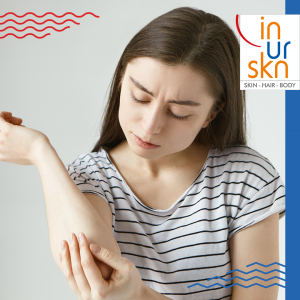
What Exactly Is An Allergy? Let’s Begin With That.
Simply put, an allergy is your body’s negative reaction to what is generally a very benign substance for most people. This reaction can take place immediately within seconds or occur after minutes or even hours and in some cases days. Also, it can be localized (constrained to a part of your body) or generalized (wide spread across the body).
An allergy can have various manifestations. Some of these are largely benign and non-threatening like:
– Itchy skin with mild redness
– Itchy and runny nose or eyes
– Sneezing
– Mild swelling of tongue or lips
However, an allergy can also get serious and take the following forms:
– Feeling of lightheadedness leading to fainting
– The skin rashes can become very severe and take the form of hives.
– Stomach Pain, Bloating, Vomiting, Diarrhea.
– Anaphylaxis – a condition in which the body can go into shock, as the blood pressure drops and the airway gets blocked by swelling and prevents the person from breathing.
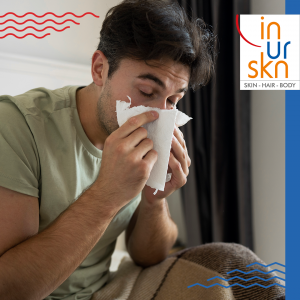
And Why Does It Even Happen?
The immune system plays a pivotal role in why allergies occur.
Normally the immune system protects the body against any undesired foreign stimulus. It helps the body distinguish between friend and foe and also destroy the foe. So when your body is exposed to a new foreign particle which is causing harm to you, your body generates antibodies which attach themselves to antigens (the foreign bodies) allowing the immunity attack cells (lymphocytes) to target and destroy these antigens. In the process the lymphocytes also release tiny protein particles called immunity mediators (also called cytokines) which tell the body that there is an enemy to fight and puts the body in a state of readiness. Thus, protecting you from any harm.
But the trouble starts when your body and specifically your antibodies misidentify a friend as a foe. So something that is harmless to most people can cause your body to go into a state of emergency and the body itself attacks such harmless foreign bodies leading to physical manifestation across the body called an allergy.
Why Should You Care About Allergies?
It is estimated that approximately 40% of the global population is sensitive to or allergic to some form of benign foreign stimuli. Knowing that you have an allergy can substantially improve your quality of life. By avoiding certain stimuli it may be possible to prevent allergy reactions all together.
So What Things Can Cause Allergies? So What Type Of Allergies Are Most Common?
Insect Bite Allergies
While most people believe that an insect bite can cause a reaction in only the area which was bit, it is actually untrue. An insect bite in one part of your body can cause your entire body to have an allergic reaction where you get bumps and rashes practically anywhere on your body.
Drug Allergies
As per some studies approximately 20% of hospitalized patients can have a drug allergy. While this can happen with practically any medication, there are certain groups of anti-inflammatories, antibiotics and anti-seizure medications which are more likely to cause allergies
Irritant Contact Dermatitis
In this case, the body, on coming in contact with certain chemicals reacts strongly. While most people can withstand limited exposure to such materials others cannot and develop an irritant contact allergy/dermatitis. These irritant chemicals can include things like drain cleaners, hair dyes, nail polish removers, paints, harsh soaps etc.
Allergic Contact Dermatitis
This is a true contact allergy caused by your immune system’s involvement in reaction to contact with allergens like fragrances, metals, medical ointments, preservatives etc. These materials may be harmless to most, but can cause serious allergies for some people.
Food Allergies
Food allergies are caused by your immune system’s response to consumption of certain foods. The most common food allergens are:
– Milk
– Eggs
– Peanuts & Other Nuts
– Wheat
– Soy
– Fish
– ShellFish

A Little More About Food Allergies
Food allergies are more common in children and in a lot of cases these allergic reactions reduce or resolve completely with age. Also food allergies can be familial in nature. Allergies to food also vary substantially by geography and ethnicity and hence genetics. As an example allergies to milk and milk products are very common in northern and eastern Asia, but not in western and southern Asia (including India). Also, in the US and UK, allergy to peanuts is extremely common in children but is very rare in Asian countries including India. In India there is anecdotal evidence of increase in food allergies over the last decade or so but it remains unsubstantiated.
So what can I do if I have allergies?
Unfortunately, all treatments for allergies tend to control and provide relief from the symptoms, but do not address the root cause. So based on the exact symptoms you are exhibiting your doctor may recommend oral and topical medications which may include the below types of drugs:
Anti-Histamines, Anti-Inflammatories, Decongestants and Steroids
If you do have recurrent allergies, it is advisable that you try to do the following:
- Identify the allergen
- Avoid the allergen
- Be prepared for a reaction with correct drugs and medications at hand.
- Wear a piece of jewelry stating the nature of your allergy (in case of emergencies)
There is a relatively experimental line of treatment for de-sensitizing the patients to the allergen called immunotherapy, which involves repeated controlled exposure to the allergen you react to in a clinical environment. However, I do not recommend the same because of lack of clarity on the efficacy and safety of this treatment.
Finally, please remember that knowledge is power. In this case it can be the power to save a life of a loved one or the ability to improve their quality of life.
How can Dr. Sejal and InUrSkn help?
Skin is one of the first organs to show allergies and hence Dermatologists are trained to identify the different types of allergies. Dr. Sejal sees a lot of patients who come in with complaints of a rash or of having sensitive skin which often turn out to be a type of allergic reaction. In case you do experience any form of recurrent skin lesions or even if your skin shows any sudden changes it is best to consult a qualified dermatologist at a reputed clinic or hospital.
Of course for any skin, hair or nails related concerns Dr. Sejal is always available at her state of the art clinic InUrSkn which specializes in the domains of dermatology, cosmetology, venereology, intimate cosmetology, trichology and body aesthetics.
Disclaimer:
The objective of this article is to educate the reader and help them make wiser choices under the guidance of a trained dermatologist. It is not meant to be used by patients for self-diagnosis or for avoiding proper medical treatment. The images used in the above blog are only for visual representation purposes. Actual procedures and results may vary from patient to patient.
About Dr. Sejal Saheta and InUrSkn:
Built on more than a decade of experience of Dr. Sejal Saheta, we are an honest and affordable skin and hair care clinic in Powai, Mumbai. Our goal is to make each patient comfortable and happy with their appearance with the least amount of intervention.
Dr. Sejal Saheta has dual degrees of MD and DNB in dermatology and venereology and has worked alongside some of the senior-most doctors at the largest hospitals in Mumbai.
Located in Powai, InUrSkn is the largest skin and hair clinic in the central suburbs of Mumbai and offers the latest technology in the safety of world-class infrastructure.
We are happy to be a part of your journey to reach your health goals. If you think we have been able to help you, please do review us:
On Practo: http://prac.to/vkpj
On Google: https://goo.gl/zHfACo






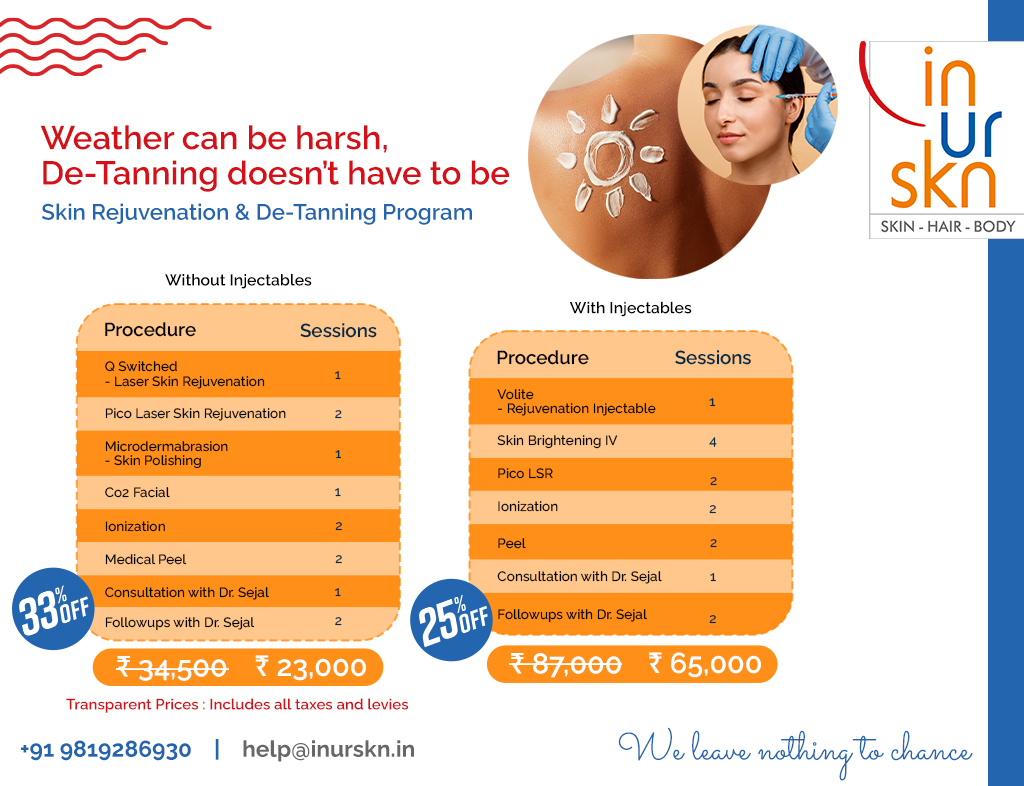














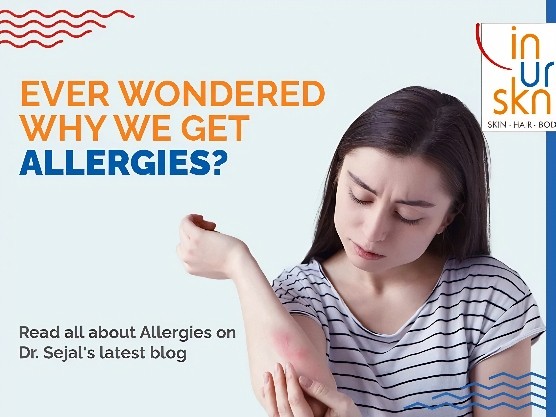
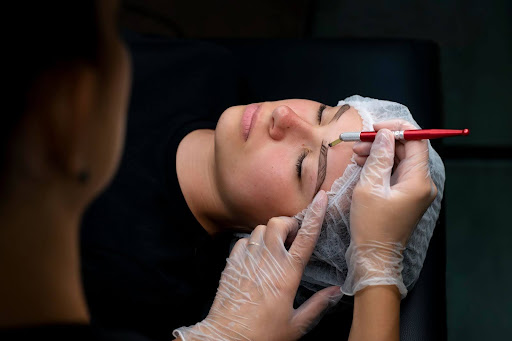


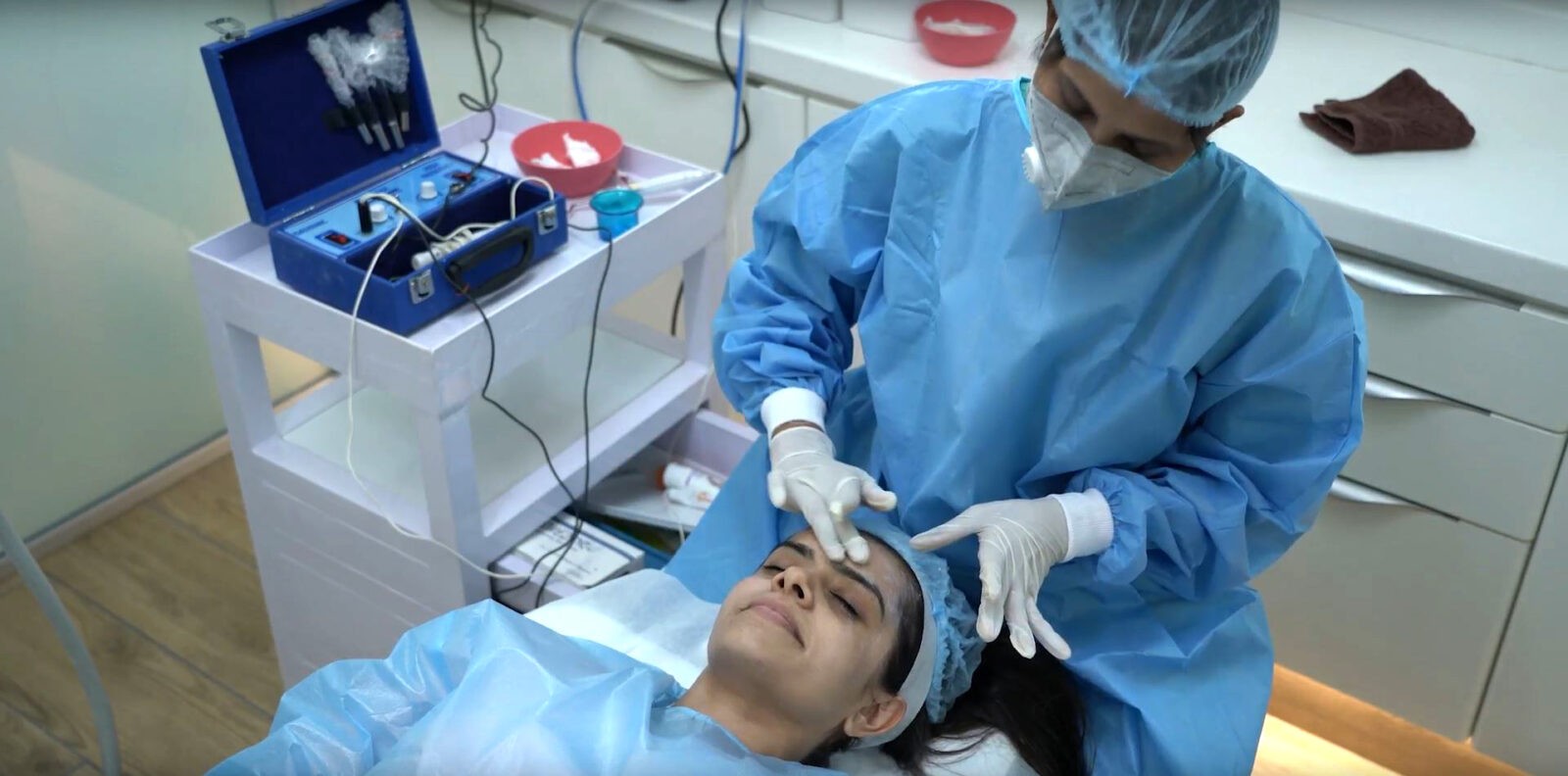
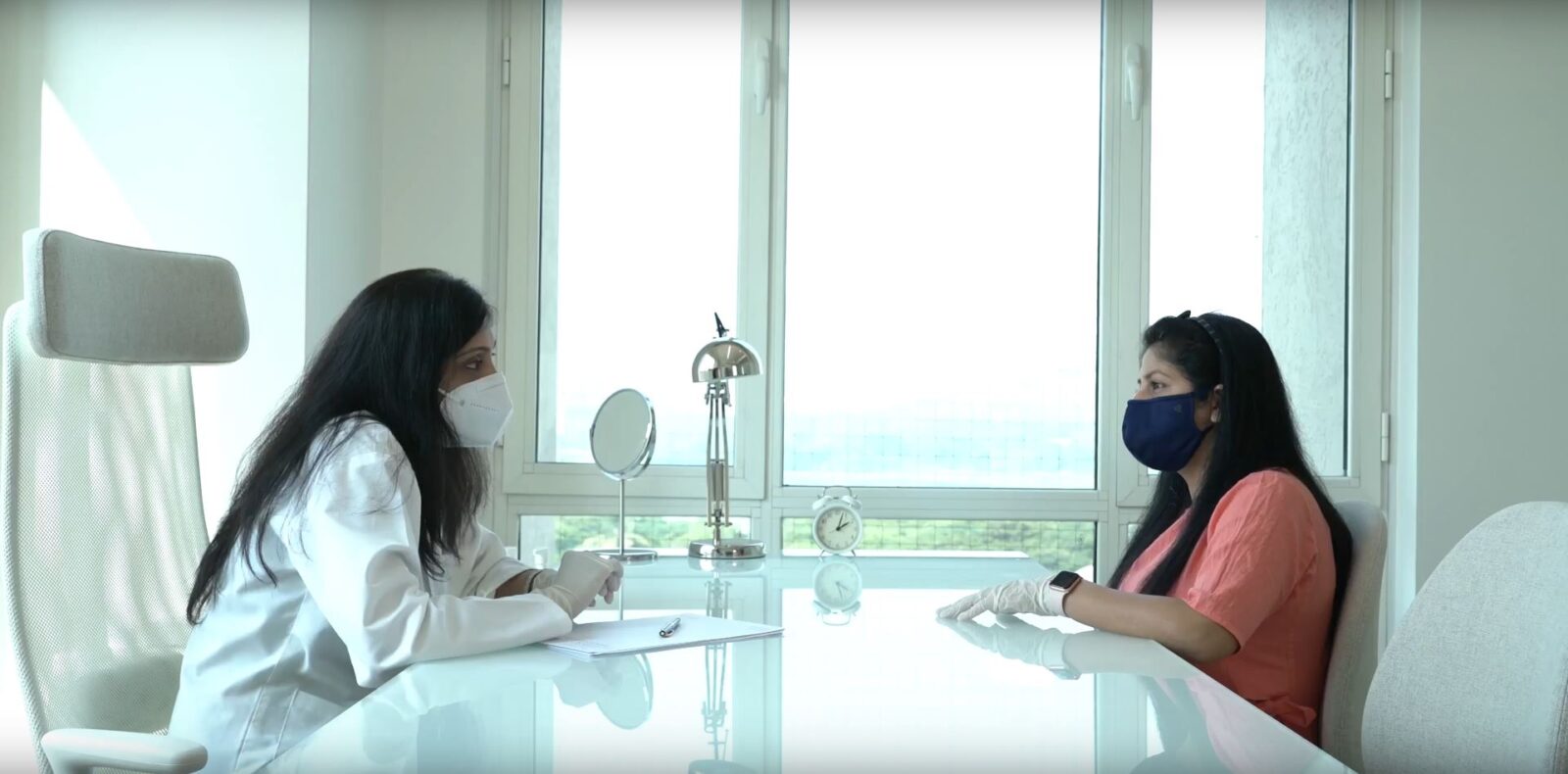

 Call us
Call us Book Appointment
Book Appointment Enquire
Enquire Location
Location




